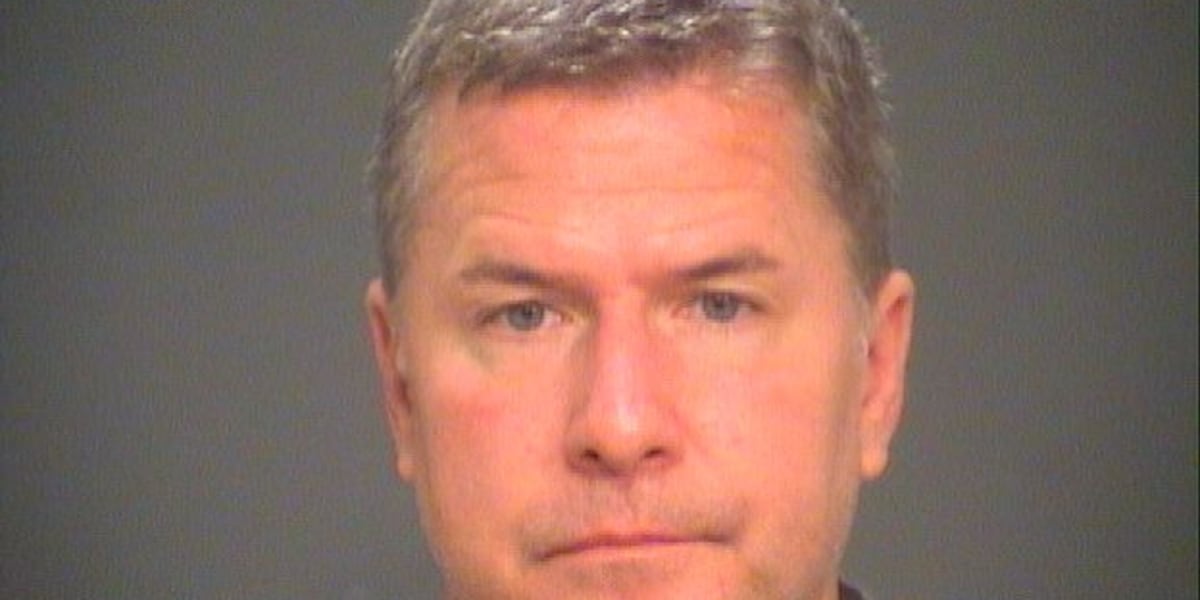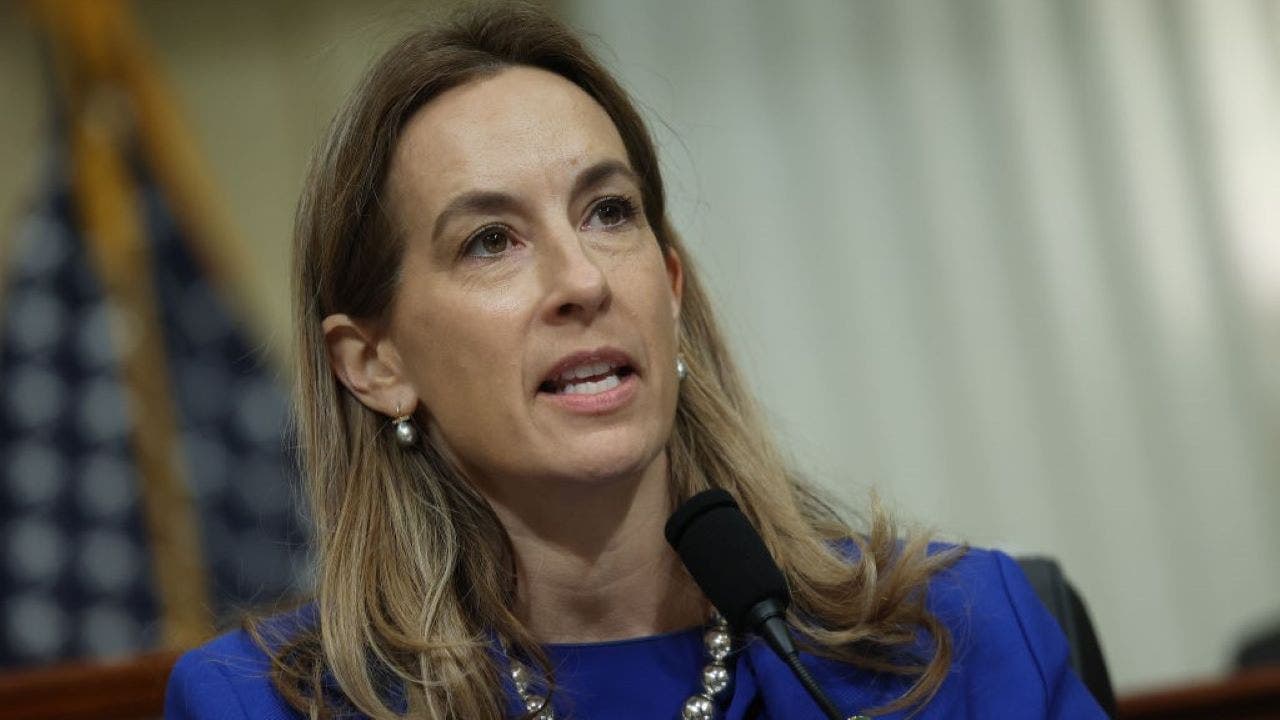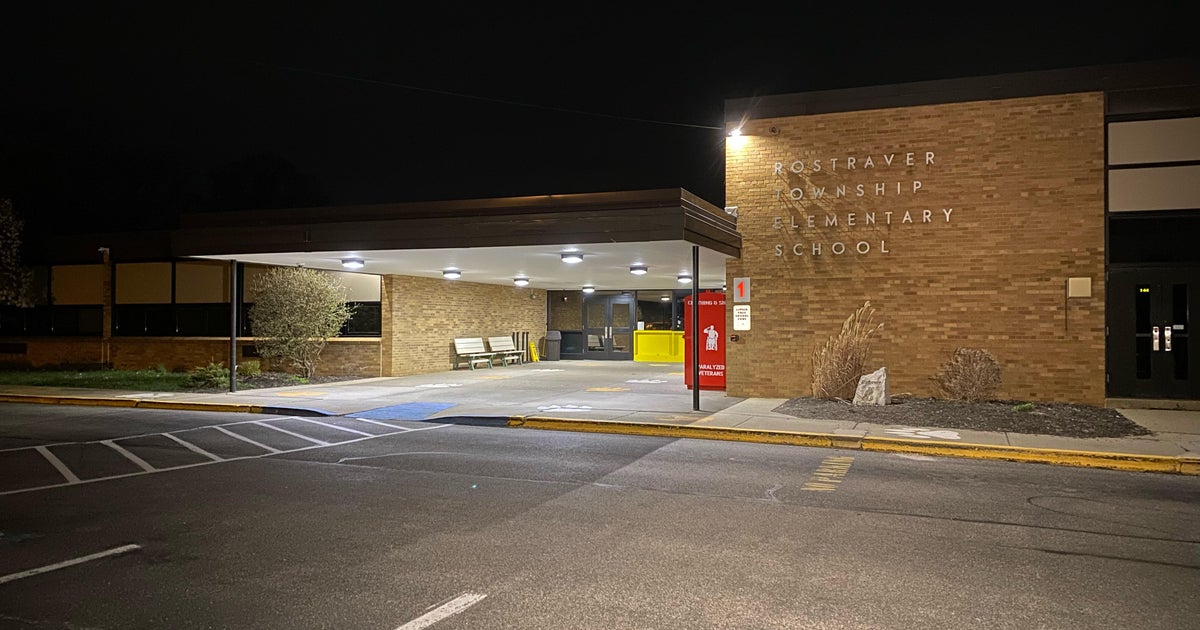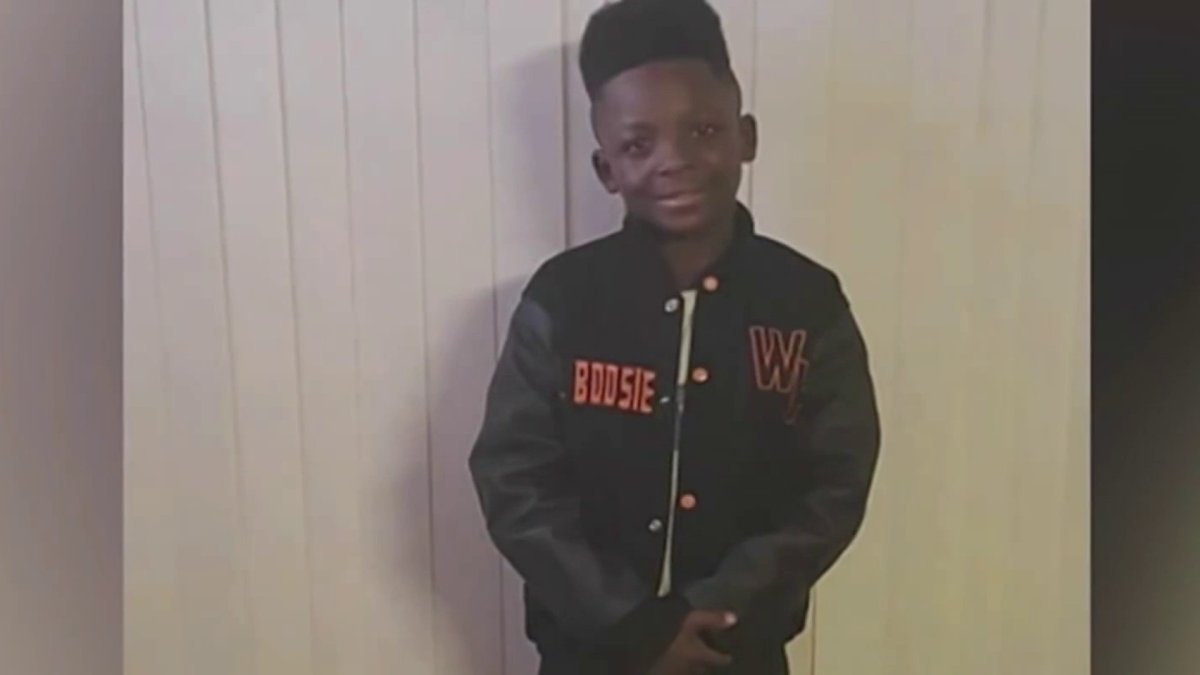Education
The Education of Ron DeSantis: 5 Takeaways

As Gov. Ron DeSantis of Florida seeks the Republican presidential nomination, he has molded his campaign and political persona around a war on the country’s supposed ruling class: an incompetent, unaccountable elite of bureaucrats, journalists, educators and other “experts” whose pernicious and unearned authority the governor has vowed to vanquish. Despite his struggles on the campaign trail, Mr. DeSantis has become captain of a new conservative vanguard that views public schools and universities as the chief battleground of the culture wars — and his Florida education policies as a model for red states around the nation.
Yet Mr. DeSantis is both a member of the ruling class and a critic of it. Educated at Yale and Harvard Law, he spent his early adulthood energetically climbing into the American elite. An examination by The New York Times reveals how Mr. DeSantis, genuinely embittered by his experiences at elite institutions, also astutely grasped how they could be useful to him. He now offers voters a revisionist history of his own encounters with the ruling class to buttress his arguments for razing it — and for remaking public education itself.
Here are five takeaways from the Times article.
He reaped the benefits of an elite education.
On the campaign trail, Mr. DeSantis often describes his years at Yale and Harvard Law as a period behind enemy lines, painting both institutions as places where students and teachers were anti-American. But his overall experience was more mixed than he acknowledges.
At Yale, he joined St. Elmo, one of the school’s “secret societies,” long known as breeding grounds of future senators and presidents. Though he says Harvard was gripped by left-wing “critical legal studies,” the doctrine was long on the wane by the time he arrived, and the school provided entree to the power brokers of the conservative Federalist Society.
When he went into politics, his elite résumé helped him court wealthy donors, raise money and garner introductions to prominent Republicans. As he acknowledged in a panel discussion back in Cambridge, Mass., shortly before he first ran for governor, “Harvard opens a lot of doors” for aspiring politicians.
His fraternity brothers recalled hazing rituals and an early comfort with power.
Echoing Mr. DeSantis’s own account of culture shock at Yale, former classmates recounted the future governor, who hailed from the middle-class, suburban Gulf Coast city of Dunedin, as bewildered and soon alienated by the more cosmopolitan, diverse Yale campus.
He found his tribe on the baseball team and in the Delta Kappa Epsilon fraternity, where he participated in the frat’s brutal hazing rituals — an early illustration, in the view of some former frat brothers, of his comfort with power and bullying.
On one occasion, Mr. DeSantis and other brothers played a prank that involved turning on a blender between the legs of a blindfolded pledge. During the frat’s wintertime “hell week,” Mr. DeSantis required a pledge to wear a pair of baseball pants with the back and thighs cut out, exposing his buttocks and genitals, former brothers and pledges said. Mr. DeSantis denied these accounts through his spokesman, who called them “ridiculous assertions and completely false.”
He was a latecomer to the culture wars.
Mr. DeSantis is now indelibly associated with policies that take on what he considers left-wing ideology in Florida’s public schools and universities: his takeover of the liberal arts school New College; efforts that make it easier for parents to challenge books available in elementary and high schools; a law prohibiting classroom discussions of sexual orientation and gender identity that are not viewed as “age appropriate”; and bans against teaching ideas like “systemic racism” in core classes at public universities.
Yet his emergence as his party’s chief culture warrior was anything but preordained, The Times found. For much of his political career, including his early years as Florida governor, he was neither closely identified with education policy nor deeply engaged in the debates over race and gender. (When a Florida lawmaker first proposed abolishing New College entirely, Mr. DeSantis replied, “What is New College?”)
It took the coronavirus pandemic — and the intertwined backlashes against mask mandates, school lockdowns and the spread of “anti-racist” and “equity” curriculums — to both awaken Mr. DeSantis to the political power of education issues and cement his suspicions of academic and scientific experts.
He’s found common cause with a new crop of conservative academics.
As he battled against critical race theory and bureaucratic elites, Mr. DeSantis became entwined with a rising movement of conservative academics and activists outside Florida, notably at Hillsdale College in Michigan and the Claremont Institute in California.
At a recent donor retreat, Mr. DeSantis featured a Claremont panel intended to “define the ‘Regime’ which illegitimately rules us” and lay out a strategy to “make states more autonomous from the woke regime by ridding themselves of leftist interests,” according to planning emails obtained by The Times.
In a report calling for Florida to abolish diversity programs, one of the experts — who argued in a 2021 speech that feminism makes women “more medicated, meddlesome and quarrelsome” — urged Mr. DeSantis to “order civil rights investigations of all university units in which women vastly outnumber men” and root out “any anti-male elements of curriculum.”
His policies have changed course on academic freedom.
In Florida, Mr. DeSantis has turned sharply away from an earlier commitment to academic freedom. Even as he calls to dismantle “woke” orthodoxy, he has imposed another, with a sweeping ban on the teaching of “identity politics” in required classes at Florida’s public colleges and universities. In the name of “parental rights,” DeSantis-backed policies have given conservative Floridians a veto over books and curriculums favored by their more liberal neighbors.
One DeSantis appointee, the conservative activist Chris Rufo, has argued that “the goal of the university is not free inquiry.” In court, lawyers for the DeSantis administration have argued that the concept of academic freedom does not apply to public university teachers, whose instruction is merely “government speech,” controllable by duly elected officials.

Education
Video: Tufts Student Speaks Publicly After Release From Immigration Detention

new video loaded: Tufts Student Speaks Publicly After Release From Immigration Detention
transcript
transcript
Tufts Student Speaks Publicly After Release From Immigration Detention
A federal judge ordered the release of Rumeysa Ozturk, a Turkish citizen studying at Tufts University on a student visa. She is one of thousands of students who face deportation, as the Trump administration escalates its attack on higher education.
-
“We love you.” “In the last 45 days, I lost both my freedom and also my education during a crucial time for my doctoral studies. I am so excited to get back to my studies, community, friends, professors and my students. America is the greatest democracy in the world, and I believe in those values that we share. I have faith in the American system of justice.”
Recent episodes in News Clips: U.S.
Education
‘The Only Person in the World Claiming to Be the Pope Right Now’

Of all the contenders to be the next pope, Danny Kind might not be an obvious choice. His shaggy hair is tinted green, and the other day he was wearing a Korn T-shirt under his ceremonial robes.
“I’m an Ashkenazi Jew from Orlando, so I’m not very Catholic,” he said. There’s also that.
None of this is disqualifying in a class at the University of Chicago called “The Italian Renaissance: Dante, Machiavelli, and the Wars of Popes and Kings,” better known by students as “pope class” or “pope LARP” (as in live-action role play). The centerpiece of the class is a simulation of the conclave of 1492, an historical gathering rife with accusations of scandal and corruption.
This is the 15th year since Prof. Ada Palmer began running the simulation, but the first time that it has been interrupted by the death of an actual pope. Pope Francis died on April 21, the same day that the students were set to vote in their own conclave.
The class arrived that day at Rockefeller Chapel, a Gothic Revival structure on campus that stands in for the Sistine Chapel, with a surreal sense of the weight of their decision.
“I’m a Catholic so it kind of sucked for me, but there was a lot of excitement,” said Joseph DePaula, 21, a third-year student who took the class two years ago and returned this year as a volunteer.
When Mr. Kind from Orlando — Cardinal Ascanio Sforza in the simulation — was elected on the fifth ballot, volunteers waved white flags from a balcony, symbolizing the smoke that billows from the Sistine Chapel when the cardinals have chosen a new pope.
Dr. Palmer, a historian and novelist, compared the class to the history version of a language immersion class. And the approach does more than help students recall names and dates. It is also a lesson in “plural power,” where anyone can change the course of history.
In the simulation, “everybody has power but nobody has control,” Dr. Palmer said. “Even the most powerful people don’t actually manage to control things enough to get the outcome they want, and even the least powerful people, when they work at it, can affect and influence what happens in the end.”
By last week, the final stretch of the simulation, some students had a hard time differentiating their real lives from their 15th-century identities.
Elsa Cukierman, who portrayed the nobleman Franceschetto Cybo, said she once accidentally called her real-life boyfriend by the name of her character’s wife. Others frantically responded to reports of a rival’s treachery on their phones at a nightclub at 3 a.m.
“Don’t eat, don’t speak, just pope,” said Julia Morales, who painted her nails baby blue to match the dress she wore as Lucrezia Borgia, the illegitimate daughter of the real Pope Alexander VI. (Events evolved differently in this year’s simulation.)
“We’re great friends in real life,” chimed in Emily Curran, dressed in the red robes of Cardinal Ardicino della Porta Jr., who opposed the Borgia family’s aspirations. “We just haven’t been able to hang out because we can’t talk about anything else but pope class.”
On April 30, the final day of the simulation, the students arrived in a bustle of excitement. They rifled through the racks of clothing that Dr. Palmer has procured over the years from sources like Renaissance fairs and the BBC’s costume department. She has alerts on Etsy and eBay for the phrase “used Shakespeare costume.”
The pope opened the proceedings with a moment of silence. At one point he assented to a petition to give an Italian cardinal control over a town in Bologna with an enthusiastic “hell, yeah!”
A duel broke out between Michael Tarchaniota Marullus and Pandolfo IV Malatesta. Then the pope himself threw off his robes to initiate his own duel with Cesare Borgia. (Borgia immediately surrendered, to the pope’s apparent disappointment.)
In real life, the 1492 conclave ended with the selection of Rodrigo Borgia as Pope Alexander VI, an outcome so heavily influenced by bribery that it inspired new rules against simony, or the selling of church offices.
But the class is a simulation, not a re-enactment, Dr. Palmer explained. That means that while students portray (mostly) real-life historical figures, they are set loose to make their own decisions.
Thus the 2025 election of Ascanio Sforza, a figure who did exist, as Pope Ambrose, who did not.
The recent success of the movie “Conclave” added to the feeling that the simulation was relevant to the real world this year. One group went to the theater in cardinal costumes, on loan from Dr. Palmer. As for the real conclave in Rome this week, Mr. Kind and several others said they were rooting for Cardinal Luis Antonio Gokim Tagle, a contender from the Philippines who is often called the “Asian Francis.”
At the end of the final simulation, students bought art and made hasty marriage arrangements, rushing to fulfill as many of their characters’ objectives as possible. Then they took off their costumes and made their way to a classroom, where they debriefed and revealed various schemes and misunderstandings.
Cesare Borgia arrived toting a skateboard. Mr. Kind opened up his laptop and put on a playlist including Joy Division and Modest Mouse. A cluster of gods and angels snacked on Oreos.
For Mr. Kind, his election as Pope Ambrose was the culmination of years of dreaming. He heard about the class from a high-school history teacher, and wrote his admissions essay to the university about his desire to participate. Right before the vote, he kissed his grandfather’s small silver mezuza, which he wears around his neck.
Mr. Kind is not the first Jewish pope, Dr. Palmer said. There have also been two Muslim popes and a transgender Catholic pope.
Mr. Kind broke down in tears when he removed his red cardinal vestments to don the white and gold robes of the Vicar of Christ. The experience was almost intoxicating. “Last Monday I got to excommunicate a guy,” he recounted. And given the circumstances swirling outside campus, it was hard not to muse about the possibility of real power.
“As far as I know, I’m the only person in the world claiming to be the pope right now,” Mr. Kind said. “I think that technically makes me pope.”
Education
Trump Calls for 20,000 Extra Officers to Help With Deportation Efforts

President Trump ordered the Department of Homeland Security on Friday to increase the deportation force of the United States by 20,000 officers, a move that would lead to an enormous expansion of immigration enforcement if realized.
In a provision tucked into a presidential proclamation focused on pushing undocumented immigrants to leave the country voluntarily, Mr. Trump called on the Department of Homeland Security to soon begin “deputizing and contracting with state and local law enforcement officers, former federal officers, officers and personnel within other federal agencies, and other individuals.”
It was unclear how such an effort would be funded, one of several major logistical hurdles to such a large operation. There are now around 6,000 officers focused on deportation efforts at Immigration and Custom Enforcement.
Mr. Trump has pushed to deputize state and local law enforcement officers for immigration enforcement before, and Department of Homeland Security officials have already signed a series of agreements with local law enforcement in the months since took office. Late last month, local law enforcement officials in Florida assisted ICE in an operation that led to the arrest of more than 1,100 migrants across the state.
The Trump administration has spent the past few months attempting to make good on the president’s promise of mass deportations by conducting sweeping raids in major cities, arresting international students and allowing officers more freedom where they make arrests, like in courthouses. But it has still struggled to reach the pace that would be necessary for Mr. Trump’s expansive deportation goals.
In recent weeks, the Trump administration has turned to pushing for migrants to leave the country on their own accord, a concept known as “self-deportation.” Earlier this week, department officials said they would pay migrants $1,000 and the cost of their travel if they left the country voluntarily and used a government app to do so.
In his proclamation Friday, Mr. Trump repeated that call, labeling it “project homecoming.”
“This proclamation establishes Project Homecoming, which will present illegal aliens with a choice: either leave the United States voluntarily, with the support and financial assistance of the federal government, or remain and face the consequences,” the proclamation read.
Mr. Trump ordered the Department of Homeland Security and the State Department to begin a “nationwide communications campaign” to tell migrants of the self-deportation offer and to warn them that not doing so would lead to stiffer consequences.
Beyond being arrested and deported, the proclamation warned that migrants could face “fines as consistent with applicable law for immigration-related crimes; the garnishment of wages; and the confiscation of savings and personal property, including homes and vehicles.”
-

 Cleveland, OH1 week ago
Cleveland, OH1 week agoWho is Gregory Moore? Former divorce attorney charged for murder of Aliza Sherman in downtown Cleveland
-

 News1 week ago
News1 week agoU.S. and China Dig In on Trade War, With No Plans for Formal Talks
-

 Politics1 week ago
Politics1 week agoRep. Mikie Sherrill suggests third Trump impeachment as she campaigns to be next New Jersey governor
-

 Politics1 week ago
Politics1 week agoTrump posts AI image of himself as Pope amid Vatican's search for new pontiff
-

 News1 week ago
News1 week agoFamily statement: Rodney Hinton Jr. walked out of body camera footage meeting with CPD prior to officer death
-

 News1 week ago
News1 week agoAre Politicians Too Old? California Democrats Want to Debate an Age Cap.
-

 World1 week ago
World1 week ago‘Don’t see a major war with India, but have to be ready’: Pakistan ex-NSA
-
News1 week ago
Stock market today: Dow, S&P 500, Nasdaq futures jump amid jobs report beat, hopes for US-China talks












